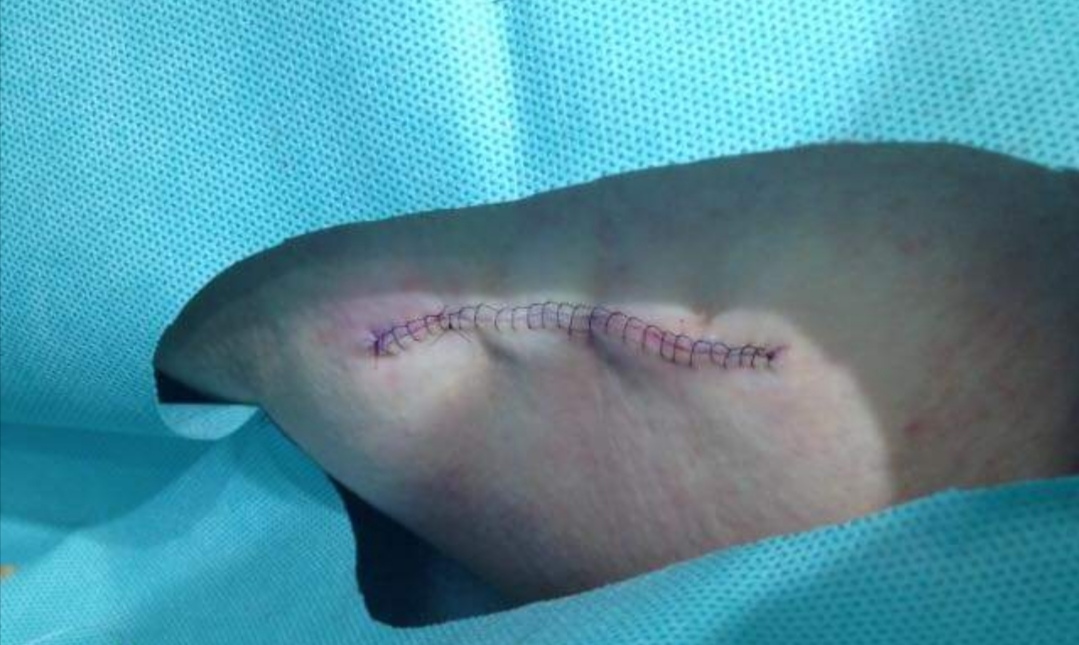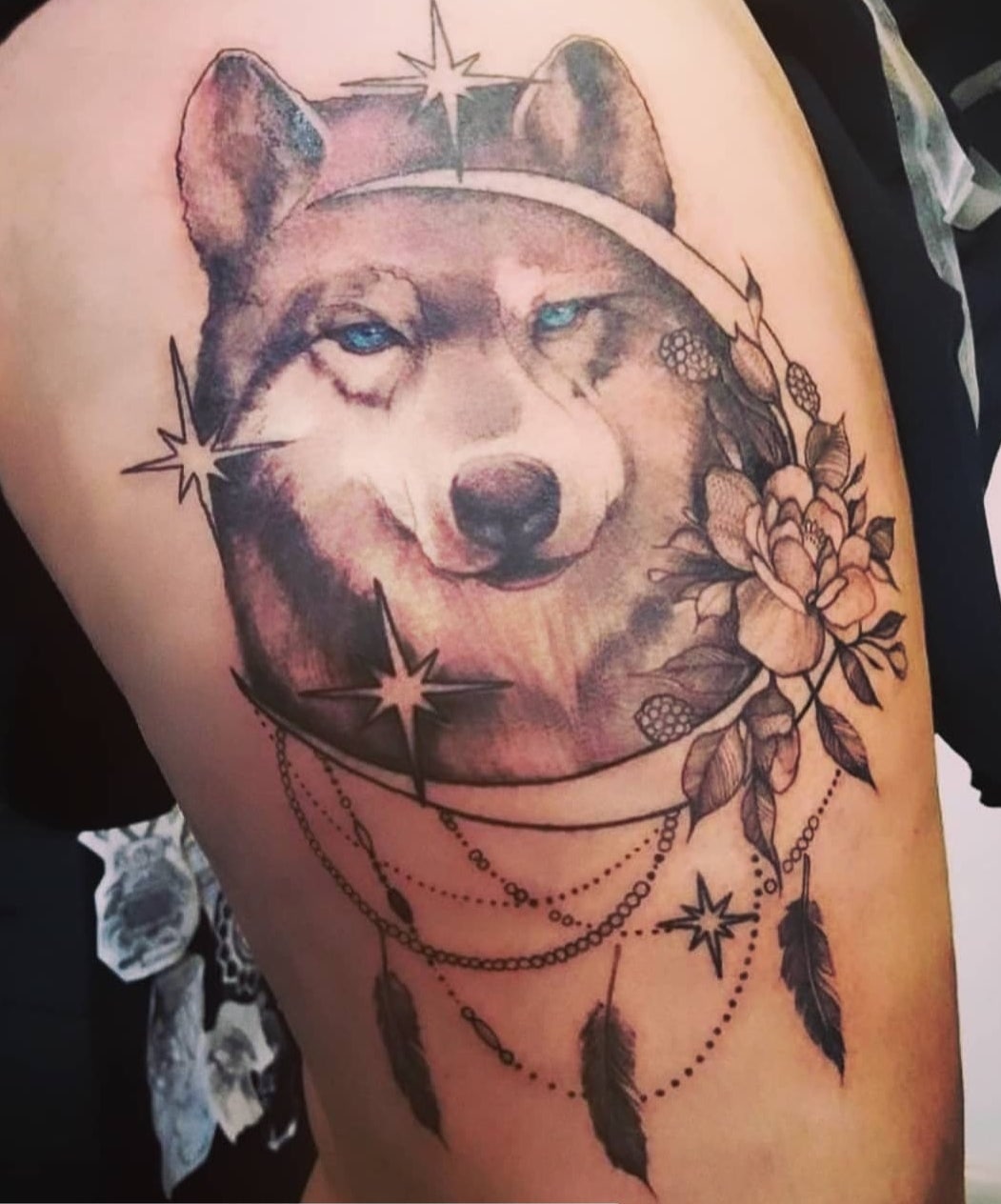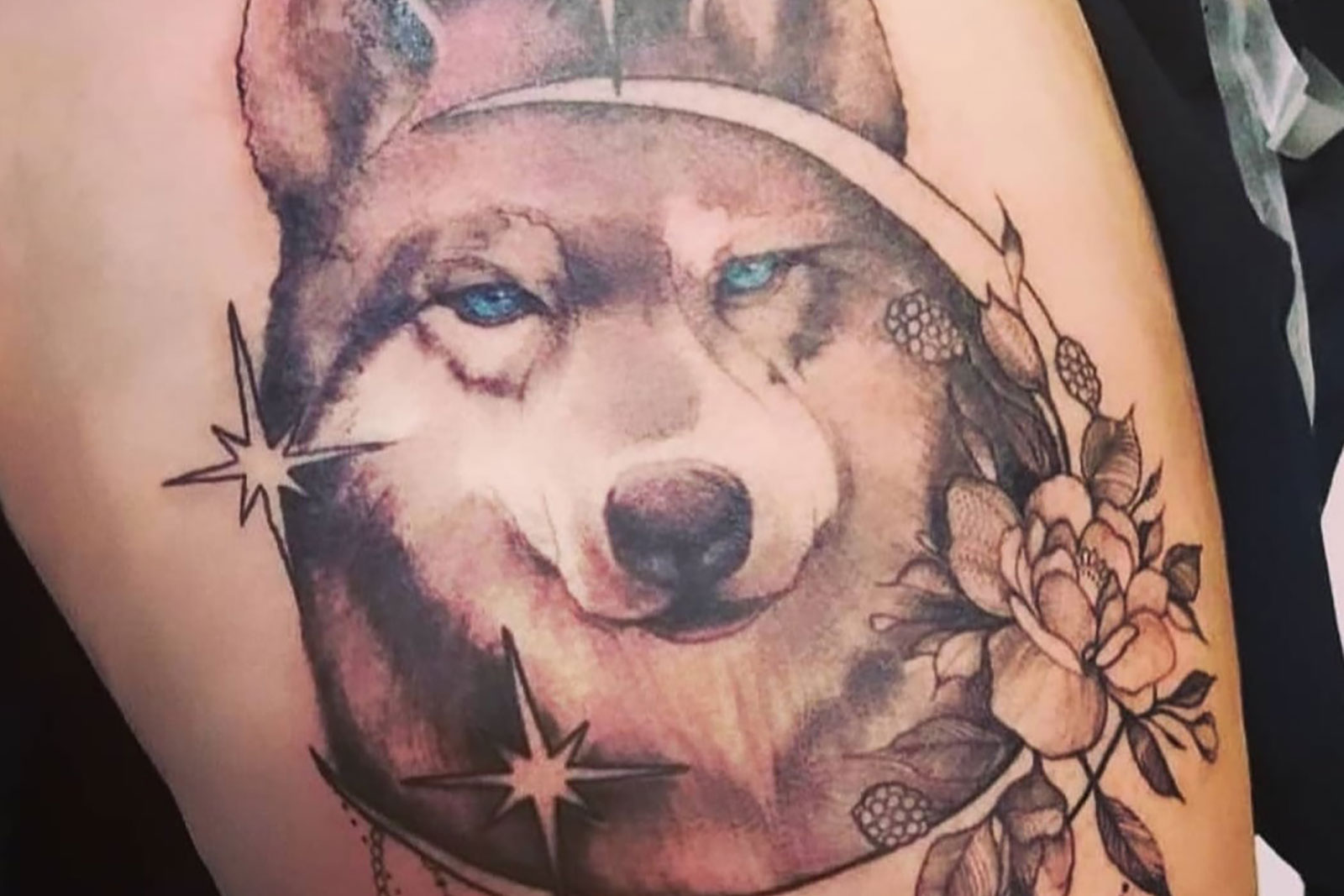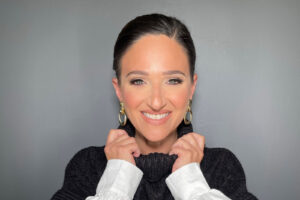Those words “I’m sorry to say, it is cancer” haunt you forever.
It was 2015 and I had a 4-year-old daughter to consider, not just myself to think about. Luckily, I was given a fantastic Macmillan Cancer Support nurse who helped ease the waves of fear that came along the second those words came out of her mouth.
I was diagnosed with malignant melanoma on the inner right thigh. It all started with something that looked like a pimple! I thought it was an odd place to have a pimple so I kept an eye on it. To be honest, it became hard to miss as it began to grow into a larger brown mark. I assumed it had “turned into a mole,” as you can get new moles into your mid-30s—I was about 23 when I noticed it.
This ugly, scary lesion continued to grow in size and irregularity, and the color became odd—a multitude of browns, reds, blacks and whites. I had asked my doctors to check it numerous times but got greeted with, “You’re too young for cancer.”
One day I lucked out and another doctor referred me to a dermatology specialist in my town. He took one look and immediately emailed his colleague at the hospital asking for his thoughts on removal.

Less than a week later, I went in for my appointment. It might seem a bit strange, but I asked as my thigh was being sewn up if I could take a picture. One hopes to not go through this again, so I thought documenting this moment was hugely important. I felt numb as I watched them carry away a large piece of me in a tub. I felt like I was watching it from outside the room, like it was happening to someone else.
My first thought as I left the room was about picking my daughter up from school and seeing her smiling, beautiful little face—she has the knack of making everything feel better. But it didn’t go like that. As soon as she came out of the doors, I remember filling up with tears and trying to hold back that huge frog in my throat. “Are you okay, mummy?” she asked. Of course, I just had to say I was just so happy to see her! Which of course was true, but you can’t help your mind working overtime and asking yourself, “How many more times will I be able to do this?”
I felt like I was watching it from outside the room, like it was happening to someone else.
I had to wait for the results of that second procedure to know if the cancer had spread any further. I don’t remember how long the wait was, but I know I was on an urgent list so it would have been within a couple of weeks. But it felt like an eternity. All those thoughts running around your head, 24 hours every day.
“What if it’s spread?” “What if I need chemo?” “What if this is it?”
Suddenly, your whole life flashes in front of you and you begin to make plans for when you’re not here. Bleak—and ironic too—that my job as a psychic medium is to help people, lift them up, spread positivity. But I just couldn’t give that to myself.
That wait became too much, and once I remember packing up any mess, tidying up and thinking I was going to end my life before the cancer got me. I don’t think anyone knows that but that’s what entered my head one day, because the fear was just too much. But again, school pick-up time came and I had to piece myself back together—it was she who gave me the strength. As the days went on, I was still terrified but I had to hold on to that positivity that I try to give to others, telling myself I would be OK.
The day came. I took my daughter to school and my mum took me back to the hospital to see Sharon, my Macmillan nurse. We sat down with not quite anticipation but more total and utter fear, waiting for what she had to say.
She told us they had cut enough tissue out, that they had cut wide and deep enough, that they had taken all of the cancer away. My mum asked if I needed to have chemo, but Sharon reassured us that it was gone. I found myself feeling like that person outside the room again, looking in watching this happen to someone else.
But the relief didn’t last long as the nurse said I would have to come back every 12 weeks for five years for checks. It’s amazing the NHS provides that service, but it felt as though a black cloud were hanging over me for the next five years.
When people hear “skin cancer,” they think, “That’s not so bad, just cut it out!” In my naivety, that’s actually what I wanted to hear my nurse say—not that I had to return to the hospital every 12 weeks for the next 5 years. That felt like a lifetime! But over those 5 years actually came quite a few scares. All turned out well, though.

I want people to know the severity of malignant melanoma. I was lucky, but many are not and it can spread to any and all parts of your body, just like other cancers. All I have to show for it now, thankfully, is my scar—and my wolf! I chose to get a wolf tattooed on my right thigh and I call him my protector. He’s named Phoenix, because just like one, I always seem to rise from the ashes. I will never give up in any area of my life.
Cancer was the most terrifying thing that’s ever happened to me. Please look after your body, look out for changes in your skin and get even the smallest thing checked out if it changes, because something that seems insignificant could change your life. Stay aware of this disease and let’s kick its ass together!







